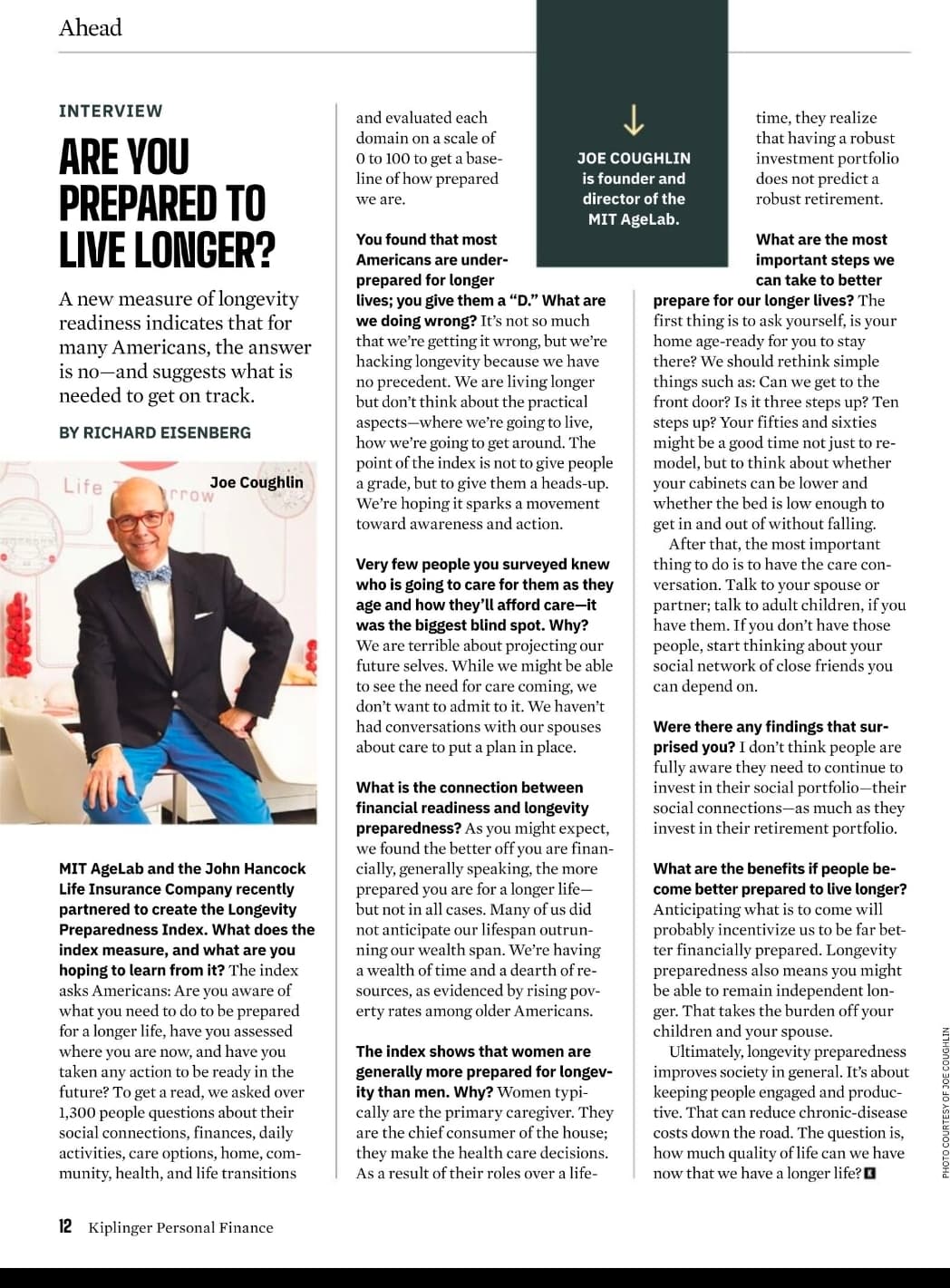This seems like it may be the next big issue facing many people here; after you’ve figured out how to increase your healthy lifespan to … 90, 110, 120 …, how to pay for a high quality of life for all those years.
From TIAA:
Survey shows only one-third of U.S. adults know the likelihood of 65-year-olds living to at least age 90
NEW YORK, Aug 21, 2023 – A staggering number of Americans display a lack of understanding regarding how long people tend to live in retirement, and this lack of longevity literacy hinders retirement planning and saving.
The findings come from a just released report by the TIAA Institute and the Global Financial Literacy Excellence Center (GFLEC) at the George Washington University School of Business (GWSB) using data from the 2023 Personal Finance (P-Fin) Index survey. The research expands upon a January reportOpens pdf that first introduced the concept of longevity literacy.
Both reports found that less than 40% of adults correctly identified average lifespan at retirement age. In the initial report based on the 2022 P-Fin Index data, 37% correctly identified lifespan from age 60. In the new report, 35% were correct about lifespan from age 65.
Furthermore, the new survey enables a more complete assessment of longevity literacy. It built upon the initial research by also asking respondents to identify the likelihood among 65-year-olds of living to an advanced age (90) and the likelihood of dying relatively early (by age 70). The findings are sobering—only 12% demonstrated strong longevity literacy by correctly answering the questions.
At the other end of the spectrum, 31% showed weak longevity literacy by responding either “don’t know” or incorrectly in the wrong direction of the retirement planning horizon (i.e., chose the response that underestimates lifespan) to each question.
The most striking demographic variation in longevity literacy involves men and women. Again, in both reports men are 10 percentage points more likely to underestimate average life span at retirement age. In addition, in the new report, men more often demonstrate weak longevity literacy, 32% compared with 29% of women.
“Longevity literacy is particularly important since retirement income security inherently involves planning, saving and preparing for a period that is uncertain in length,” said Surya Kolluri, head of the TIAA Institute. “Our research clearly demonstrates a lack of longevity literacy among the vast majority of U.S. adults. Improving this can promote better retirement security and mitigate longevity risk.”
The new research confirmed the link – for both retirees and those still working – between strong longevity literacy and overall retirement readiness. Considering the responses from people still working who have strong longevity literacy, the report found that:
- 50% have determined how much they need to save for retirement, compared to 32% of those with weak longevity literacy.
- 72% are saving for retirement on a regular basis, compared to 58% of those with weak longevity literacy.
- 69% are confident about having enough money to live comfortably throughout retirement, compared to 53% of those with weak literacy.
Findings are similar to those with strong longevity literacy who have already retired:
- 77% say their current lifestyle meets or exceeds their pre-retirement expectations, compared to 62% of those with weak literacy.
- 82% say they are confident they have enough money to live comfortably throughout their retirement, compared to 69% of those with weak literacy.
“Unfortunately, poor longevity literacy cannot be improved by simply providing people with information. Terminology is an obstacle,” said Annamaria Lusardi, University Professor at The George Washington University and GFLEC’s Academic Director. “For example, only one-third of adults understand the practical implications of the term “life expectancy.” On the other hand, one-quarter think that “life expectancy” is the age by which the vast majority of a group of people will die. So simply providing information is not enough, we have to do more to teach about these important concepts.”
Related Reading:
The new full report can be found on the Institute website.
Overview here:
2023-tiaa-institute-gflec-pfin-longevity-infographic.pdf (1.1 MB)
Longer Document:
tiaa-institute-gflec-pfin-longevity-ti-yakoboski-august-2023.pdf (1.8 MB)
About the TIAA Institute
The TIAA Institute, the research arm of TIAA, helps advance the ways individuals and institutions plan for financial security and organizational effectiveness. The institute conducts in-depth research, provides access to a network of thought leaders, and enables those it serves to anticipate trends, plan future strategies and maximize opportunities for success. For more information about the TIAA Institute, visit www.tiaainstitute.org.
